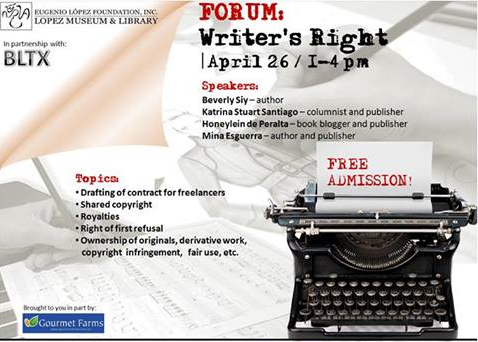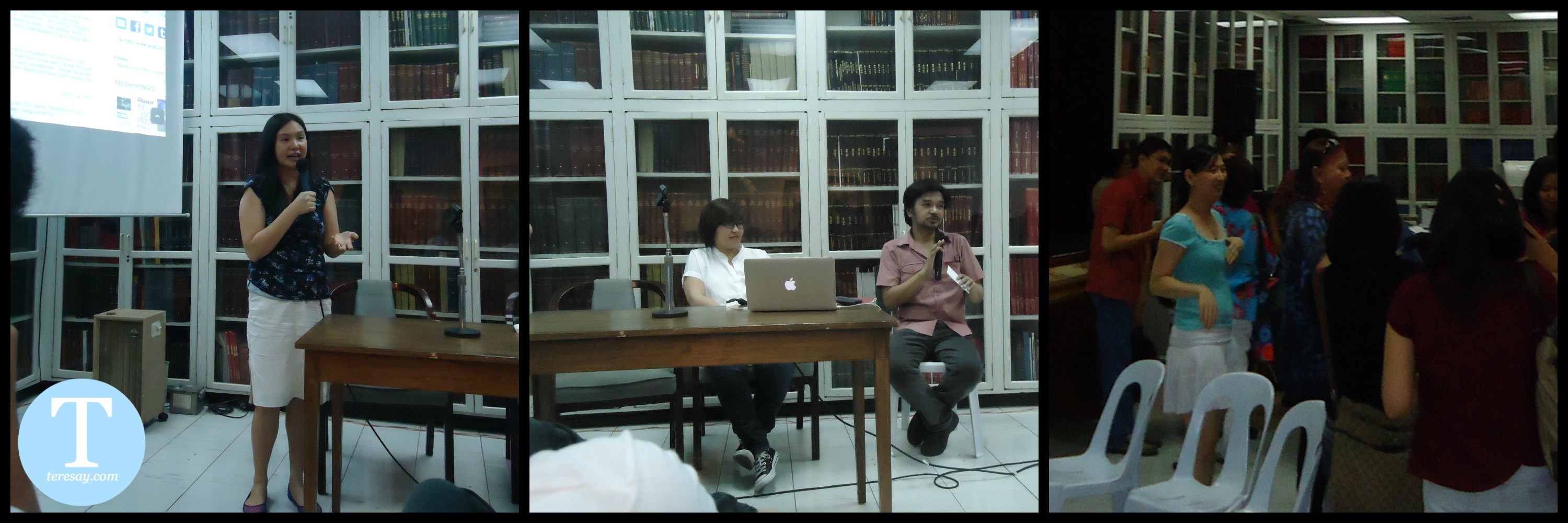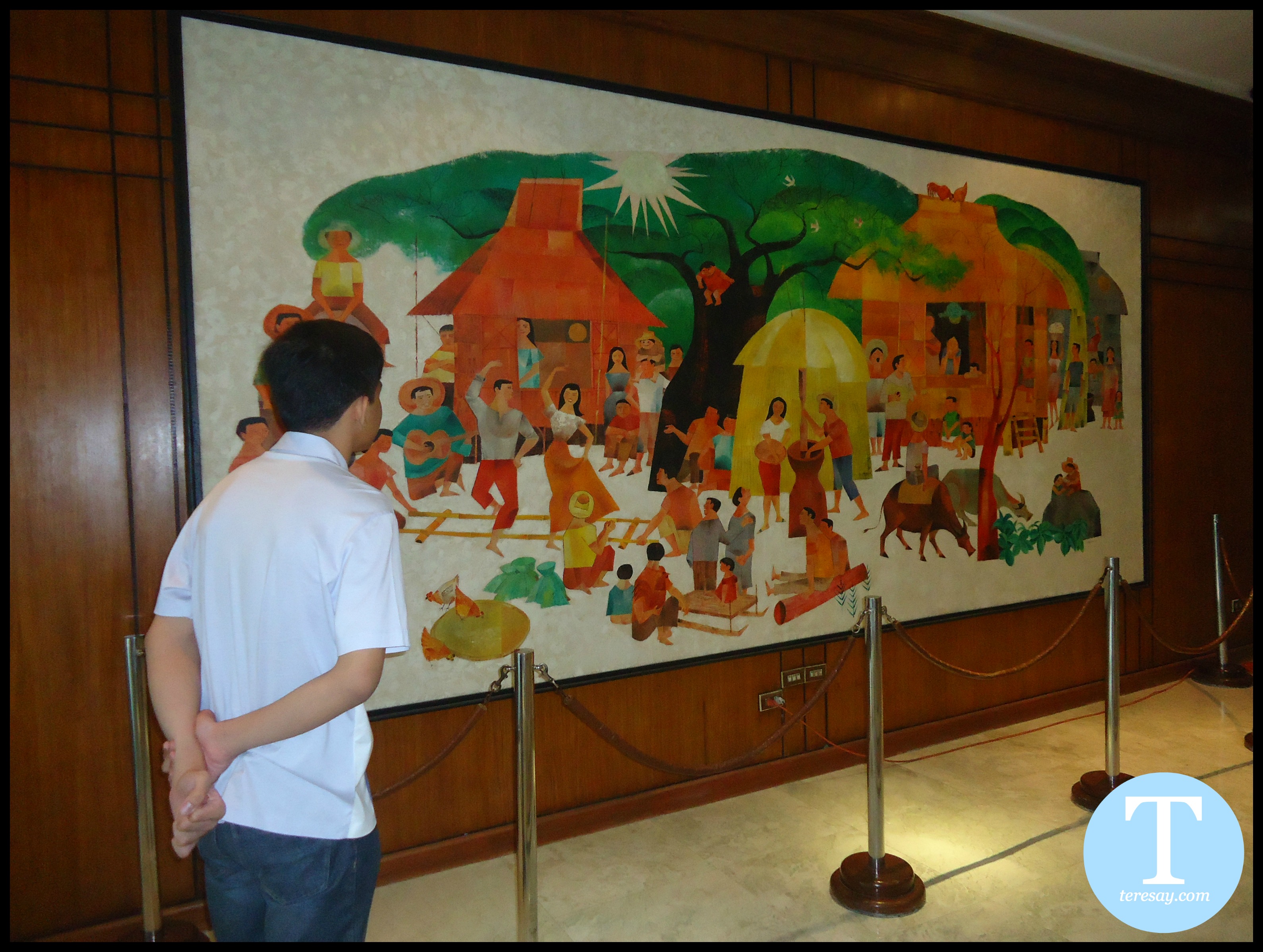Rights of Writers and Why You Should Take Time to Know Them
Most of the time, writers would be preoccupied with getting published and earning from their written works that they forget that their present actions can severely affect their future opportunities. This is especially so if they are not particularly aware of the rights of writers. This was more or less the gist of a forum I attended last week together with my teenage son who is a budding writer in his own right. This forum called “Writer’s Right” literally opened my eyes to certain realities which I should have taken the time to know much earlier. It is a good thing that learning it now is not too late for me nor too early for my son.
Writer’s Right Forum
There were several speakers who shared their time and knowledge to an audience consisting of people who were bound by being creators of literary or artistic works. It was a group that cannot be defined by gender, age, nor looks. Never the less, the similarity clearly stands out – the desire to protect one’s creation from infringement, if not outright intellectual theft.
We were very fortunate to have had the opportunity to listen to speakers who knew what they are talking about because of acquired knowledge and experience. Aside from the four speakers indicated, Marlon Anthony Tonson, Esq. spoke on the legal aspect of the issues at hand. The talk centered mainly on the issue of Copyright and I found out that day that there were so many things to talk about in this single issue alone.
Points of Learning
Though it is quite impossible to absorb all the information being given in one seating, here are some of the more salient points of my personal learning for that day:
1. Copyright is a Bundle of Rights
This was repeated many times over the course of the talk. Simply translated, Copyright always involves several rights such as economic and moral rights, and not merely one. In determining whether a Copyright has been infringed upon, it is possible that one right can be respected while violating another.
2. Anything that Can Be Expressed is Copyrightable
Anything that can be conceived and expressed is copyrightable. If it remains an idea in the head of its creator, then it is not. Copyright can be registered with the National Library of the Philippines or the Bureau of Copyright and Other Related Rights under the Intellectual Property Office.
3. Work is Copyrighted from the Time of its Creation
Contrary to common belief that copyright only begins to exist from the time of registration, copyright protection starts when an idea is converted into a tangible form. A writer does not even need to be published to be protected. Protection is an inherent right attached to every creation.
4. Writers Should Not Give Up All Their Rights
There are many kinds of rights attached to a created work. Writers can give publishers printing rights, electronic rights, or reprinting rights, among other rights. However, it is important to remember that it is not wise for writers to give up all their rights. Doing so would mean that a writer will never be able to work on his original work again like creating a sequel unless he purchases the right to do so from the publisher to which all rights were sold to. This is also the part where the audience was reminded to read and understand all contracts they enter into.
5. Writers Can Choose Who to Pass On Their Copyright To
The speaker emphasized this point quite extensively. It is a fact that legal heirs can benefit from copyright held by their creators before death. Choosing an heir to a copyright can be done by putting such desire in written form, very much like a holographic will and keeping it secure until the right time comes.
My Say
There were actually many other interesting points that were discussed and I doubt if they can all be tackled comprehensively in one day. I realized writers have rights but they will not be of any use when they are not protected and fought for. It has been said that young writers like my son need to be guided so as not to be robbed of their rights. It bears noting however that full grown adults and experienced writers can still end up the same way unless they know what their rights are and are willing to do what is required to retain them.
















Riza
Thanks for sharing these very informative write up for writers and as well as to bloggers.
FX777 Classified Articles
It’s a must to all writers to know their rights, and to learn the same.
Mitch Ryan (@mitchryan23)
Yes all writers must know their rights. Together with this, are the responsibilities that come naturally with it.